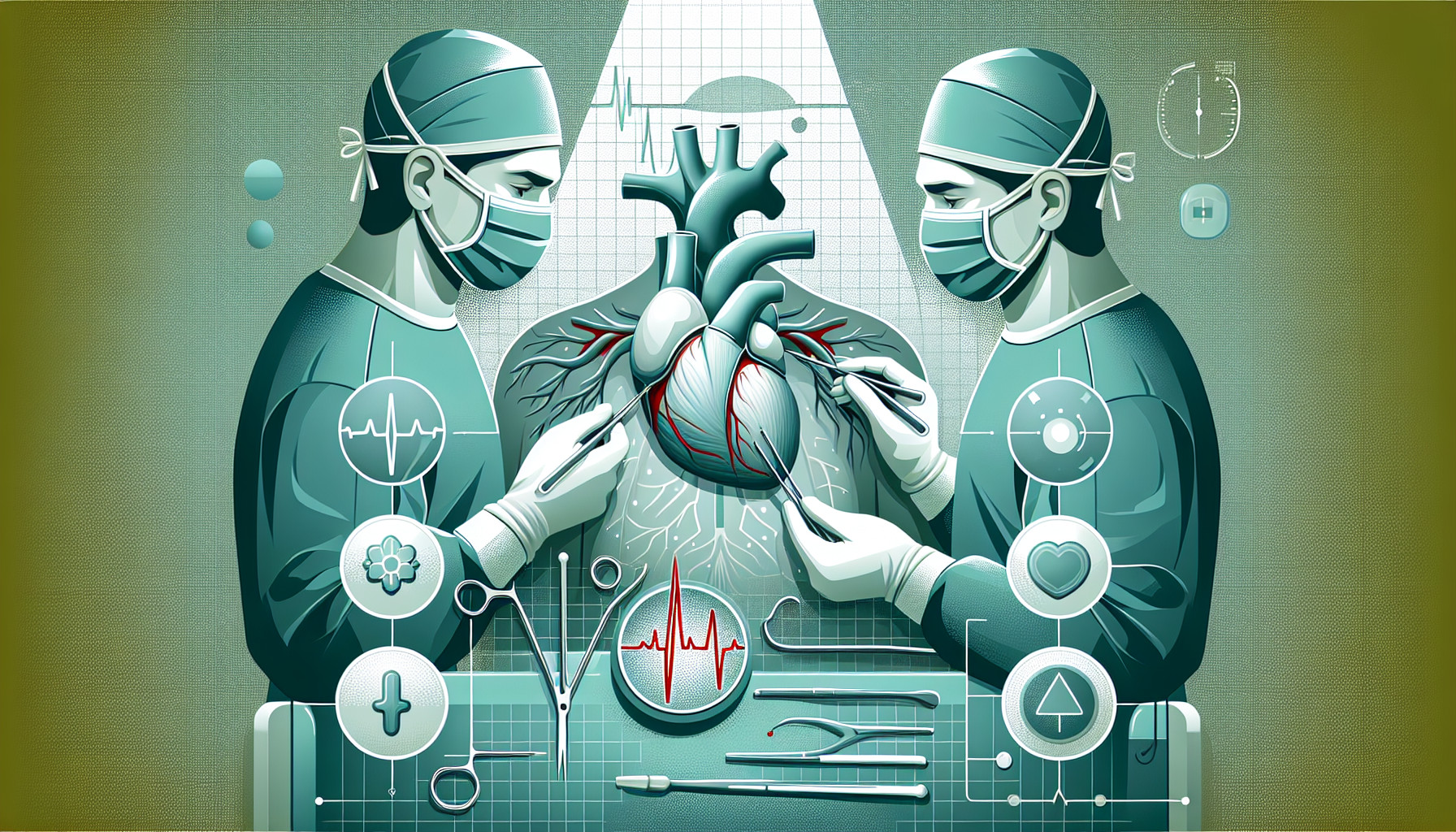Our Summary
This research paper focuses on a surgery called coronary artery bypass grafting (CABG), which is a common procedure to improve blood flow to the heart, and surgical aortic valve replacement, another heart surgery, specifically in older people. The study aims to understand the consequences, risks, and benefits of these surgeries in the elderly population. As the abstract is not available, the specific findings cannot be summarized. However, the goal is likely to provide insights that can help make better clinical decisions for older individuals who may need these types of heart surgeries.
FAQs
- What is surgical aortic valve replacement?
- Who are the ideal candidates for coronary artery bypass grafting?
- How does age affect the process of aortic valve replacement?
Doctor’s Tip
One helpful tip a doctor might tell a patient about aortic valve replacement is to carefully follow post-operative care instructions, including taking prescribed medications, attending follow-up appointments, and participating in cardiac rehabilitation. It is important to listen to your body and report any unusual symptoms or changes in health to your healthcare provider promptly. Additionally, maintaining a healthy lifestyle with regular exercise, a balanced diet, and avoiding smoking can help improve outcomes and long-term success of the surgery.
Suitable For
Patients who are typically recommended aortic valve replacement include those with severe aortic stenosis or regurgitation that is causing symptoms such as chest pain, shortness of breath, fatigue, or fainting episodes. Additionally, patients with severe aortic valve disease who are at high risk for complications or death without surgery may also be recommended for aortic valve replacement. Other factors that may influence the recommendation for aortic valve replacement include the patient’s overall health, age, and presence of other medical conditions.
Timeline
Before aortic valve replacement:
- Patient undergoes initial evaluation by a cardiologist to determine the severity of the aortic valve disease.
- Patient may undergo additional tests such as echocardiogram, cardiac catheterization, and stress tests to further assess the condition of the heart.
- Patient is informed of the need for aortic valve replacement surgery and is counseled on the risks and benefits of the procedure.
- Patient undergoes pre-operative preparation which may include stopping certain medications, fasting before surgery, and completing necessary paperwork.
- Patient is admitted to the hospital on the day of surgery and undergoes anesthesia before the procedure.
After aortic valve replacement:
- Patient wakes up in the recovery room after surgery and is closely monitored by medical staff for any complications.
- Patient may experience pain, fatigue, and discomfort in the days following surgery as the body heals.
- Patient is gradually mobilized and encouraged to participate in physical therapy to aid in recovery.
- Patient may need to stay in the hospital for several days to monitor for any signs of infection or complications.
- Patient is discharged from the hospital once deemed stable and is provided with instructions for post-operative care and follow-up appointments.
- Patient undergoes regular follow-up visits with their cardiologist to monitor the function of the new aortic valve and address any concerns or complications that may arise.
What to Ask Your Doctor
- What are the risks and benefits of undergoing aortic valve replacement surgery?
- How long is the recovery time after the surgery?
- Will I need to take medication for the rest of my life after the surgery?
- Are there any alternative treatments to aortic valve replacement that I should consider?
- How often will I need to follow up with you after the surgery?
- What lifestyle changes will I need to make after the surgery?
- Will I need any additional procedures or surgeries in the future after aortic valve replacement?
- What are the success rates of aortic valve replacement surgery?
- How will the surgery affect my overall quality of life?
- Are there any specific complications or side effects I should be aware of after the surgery?
Reference
Authors: Spadafora L, Bernardi M, Biondi-Zoccai G, Frati G. Journal: Interact Cardiovasc Thorac Surg. 2022 Jul 9;35(2):ivac191. doi: 10.1093/icvts/ivac191. PMID: 35876811
